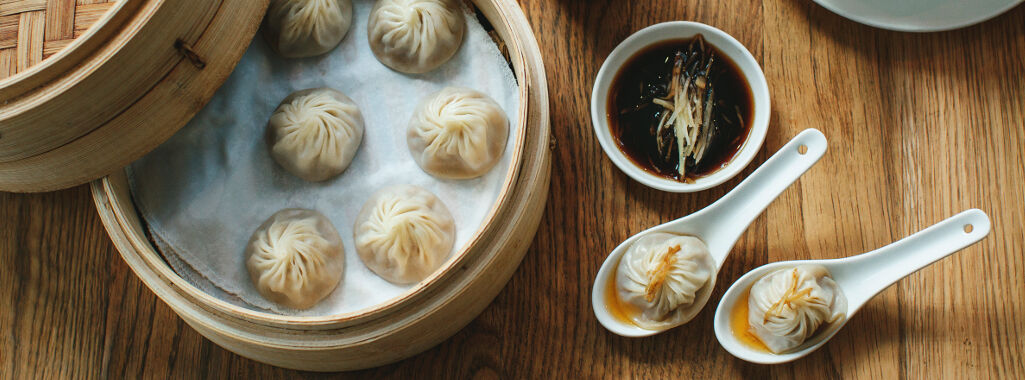After over two and half years spent on a small island in South Korea, I’m not ashamed to say Kaohsiung’s variety of restaurants is one of my favourite things about this large city.
Here is a list of some of my personal favourites:
Din Tai Fung – Want your Taiwanese cravings satisfied? This renowned Taiwanese chain of restaurants is popular around the world. Be prepared to wait for a table, especially on the weekend. They are most famous for their plump soup dumplings.
Address: No. 777, Bo’ai 2nd Rd, Zuoying District, Kaohsiung City, 813

Yale Town – A Candian themed restaurant, with some small traces of Taiwanese fusion, this restaurant is popular for lunch (although also open for dinner). While I prefer the sandwiches or slow cooked pork/wings with rice, my partner prefers their Paninis; but I couldn’t imagine anyone faulting a dish on their menu.
Address: No. 26-3, Xinguang Road, Lingya District, Kaohsiung City, 802

Bark – If you want a German Brat, or just a good quality, fair priced breakfast, Bark is the place to go. They make their own bread and sausages, and you can really taste it!
They back onto a park and have frisbees and a badminton kit to entertain yourself with while you wait. The staff are friendly and we have never been disappointed by the food.
*Note: The breakfast menu is only available on weekends and they open at 11am. Also, you may need your GPS to locate them as their shop front is small.
Address: 城峰路313號, Zuoying District, Kaohsiung City, 813

Conways – If you want a hearty meal, but prefer something from ‘across the pond’, Conways is the place to be. The internal facade of this restaurant is decorated to resemble a quaint British pub, which melds well with the authentically British food. Here you can get your fill of Sunday roasts with Yorkshire puddings, cottage pie, and beans on toast with your large English breakfast.
*Note: You usually need to book a table in advance and pre-order the Sunday roast.
Address: No. 65-10, Xinzhuangzi Rd, Zuoying District, Kaohsiung City, 813
Katsi Cafe – A mediterranean delight, this restaurant is relaxed, fair priced, and authentic. The owners are a French chef and his partner, both of whom are very warm and passionate about their food and business. The food at this establishment is very diverse, and the menu is large; offering dishes from such countries as Syria, France, Greece, and Italy. There is no A/C at this restaurant, as it offers more of a rustic setting, keeping the atmosphere casual and communal. If I go, I must always have the greek salad with every meal; the dressing is amazing.
Address: 804, Kaohsiung City, Gushan District, 九如四路1823號

Chih Kan Dan Zai Noodles – I have personally struggled to find fresh traditional Taiwanese food I like in Kaohsiung. So sadly, I must be honest, this restaurant is technically in Tainan. However, despite being located in Tainan it is conveniently situated within walking distance of Tainan Train Station (30 minute train ride Zuyoing Train Station in Kaohsiung) and pretty much neighbouring Anping Fort. Also, around the block you will find FORT gelato, a great after meal treat. This restaurant offers fresh, light, authentic Taiwanese food at a fair price. The menu has pictures, so it is an easy choice for those who don’t speak Chinese. The environment is very relaxed and comfortable, with A/C in the summer and lots of space, so you don’t feel crowded when it is busy.
Address: No. 180, Section 2, Minzu Rd, West Central District, Tainan City, 700
Honorable Mentions:
- Foster Hewitts: A Canadian themed bar that offers great wings and delicious cocktails.
- Maharaja Indian Restaurant: Offers many authentic and creamy curries.
- Wakey Wakey: This American style bar/restaurant offers a great atmosphere for a drink and/or meal on it’s large deck overlooking lotus lake. We really enjoyed celebrating Christmas and bringing in the New Year at this venue.
- Hungarian Restaurant: Offers traditional and comforting Hungarian and Czech dishes.
- German Soul: The sausages are handmade by the friendly and passionate German owner/chef. They offer traditional German meals such as strudel, pretzels, meat loaf, schnitzel, currywurst, and many other German favourites.






























